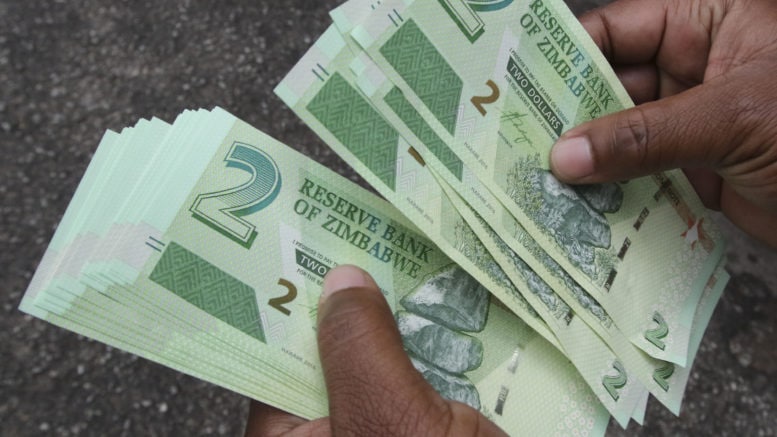Everyone goes through a spell of thinking they have more money in the bank than they really do – but now an entire country is going through the disconcerting experience.
The new government in Zimbabwe inherited a complicated currency system from the outgoing President Robert Mugabe.
The easiest way to deal with the problem, so they thought, was to draw a line and start again with a new currency.
But the central bank seems to have added an extra layer of confusion.
The new RTGS dollar is now an interim measure which is not a currency but will serve as a currency until yet a third solution starts sometime next year.
Money for nothing
“It is effectively an amalgamation of two distinct parts of the outgoing currency arrangements, namely ‘bond notes’, actual physical currency introduced as a surrogate for scarce US dollars, which have been the main currency in use in the last decade but without enough in circulation and ‘RTGS’, which is the commonest form of electronic payment, mainly via debit cards,” explained Andrew Payne, who posts a monthly currency review for expat benefits consultancy ECA International.
“Bond notes will still circulate and there will be no RTGS$ notes and coins, apparently, and debit cards will still be the most popular payment means, but the two will become one under the RTGS$ name, commanding the same exchange rate and the same prices in shops, or so it is hoped.”
None of the weakest or strongest countries come from the Big Five – the US, China, UK, Europe or Japan.
Winners and losers
The biggest gains were in Jamaica and the Ukraine.
While the countries with the largest losses were Argentina, where rampant inflation is running at 49%, Ghana, Haiti and South Africa.
“Very few currencies gained significantly against the euro in February, with only two rising 3% or more,” said Payne.
“Ghana was the world’s weakest currency, but is a victim of its own success. High demand locally for dollars and other hard currencies in order to pay for imports as the economy grows fast is driving down demand for the Cedi and the value is dropping.”
